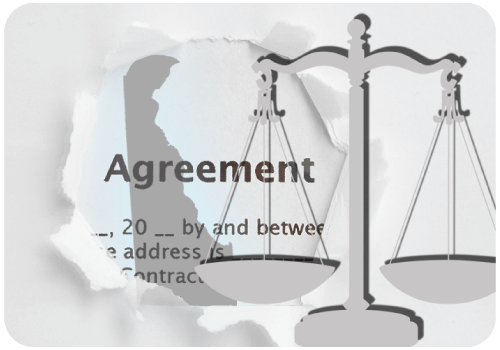Why Delaware Corporate Law Still Reigns Supreme in 2025

Delaware has long been the gold standard for corporate law—and in 2025, that reputation remains as strong as ever. But it's not just tradition that keeps Delaware at the top. The state continuously evolves to stay business-friendly, competitive, and responsive to the needs of both corporations and investors.
Let’s break down what still makes Delaware corporate law the go-to framework—and what’s changed recently to keep it that way.
The Power of the Delaware Court of Chancery
At the heart of Delaware’s legal edge is the Delaware Court of Chancery, a unique, business-focused court that doesn’t use juries. It’s made up of judges (called chancellors) who specialize in corporate law and are known for their deep expertise and efficiency.
This court gives companies the benefit of fast resolutions, consistent rulings, and a vast library of precedent, which helps corporations understand exactly what to expect if legal issues arise. It’s one of the top reasons over 1.9 million business entities call Delaware home—including more than two-thirds of Fortune 500 companies.
Modern, Flexible Corporate Statutes
Delaware’s General Corporation Law (DGCL) has long offered businesses clarity, flexibility, and predictability. Companies can tailor their internal governance structures, making Delaware an ideal choice whether you're a solo founder or a complex multinational operation.
That flexibility expanded even further in March 2025 with the passage of Senate Bill 21 (SB 21), a legislative update that gives companies more control in navigating conflicted transactions. Instead of requiring both board and shareholder approval to shield such transactions from intense scrutiny, companies now have the option to use just one of these “cleansing mechanisms” and still benefit from business judgment rule protection. In addition, SB 21 allows a majority of disinterested directors to approve deals, rather than requiring a fully independent committee.
This reform aligns with Delaware’s tradition of thoughtful corporate law evolution—aimed at maintaining fairness without hamstringing decision-making. It’s a proactive response to pressures from other states competing for incorporations and ensures Delaware remains the leader in corporate governance.
Investor Confidence & National Appeal
Despite these updates, Delaware remains a favorite among investors and venture capital firms. That’s because its legal system offers unmatched predictability and protections, even amid regulatory evolution.
In fact, many VC term sheets and private equity deals still include Delaware incorporation as a condition, simply because no other jurisdiction offers the same balance of legal rigor and business flexibility.
Bottom Line
Delaware corporate law matters more than ever in 2025—not just because of its history, but because of its ongoing innovation. Whether you’re launching a startup, scaling a business, or preparing for IPO, Delaware offers the legal infrastructure, judicial expertise, and modern flexibility to support your goals.
Thinking of forming your company in Delaware? There’s a reason so many successful businesses already have. Read more on our blog.
*Disclaimer*: Harvard Business Services, Inc. is neither a law firm nor an accounting firm and, even in cases where the author is an attorney, or a tax professional, nothing in this article constitutes legal or tax advice. This article provides general commentary on, and analysis of, the subject addressed. We strongly advise that you consult an attorney or tax professional to receive legal or tax guidance tailored to your specific circumstances. Any action taken or not taken based on this article is at your own risk. If an article cites or provides a link to third-party sources or websites, Harvard Business Services, Inc. is not responsible for and makes no representations regarding such source’s content or accuracy. Opinions expressed in this article do not necessarily reflect those of Harvard Business Services, Inc.
There are 2 comments left for Why Delaware Corporate Law Still Reigns Supreme in 2025
Bovas Johannan said: Wednesday, October 25, 2023Wonderful article. As as research student, this info helped me a lot. Infact, thereshould be a campaign for the whole world to have this law. Million thanks.
HBS Staff replied: Wednesday, October 25, 2023Thank you for reading our blog and for your comment. We wish you much success.
Shankar Jha said: Sunday, March 7, 2021Great information on Why Delaware Corporate Law Matters So Much
HBS Staff replied: Sunday, March 7, 2021Shankar, Thank you for reading our article and we are glad you found the article helpful.
